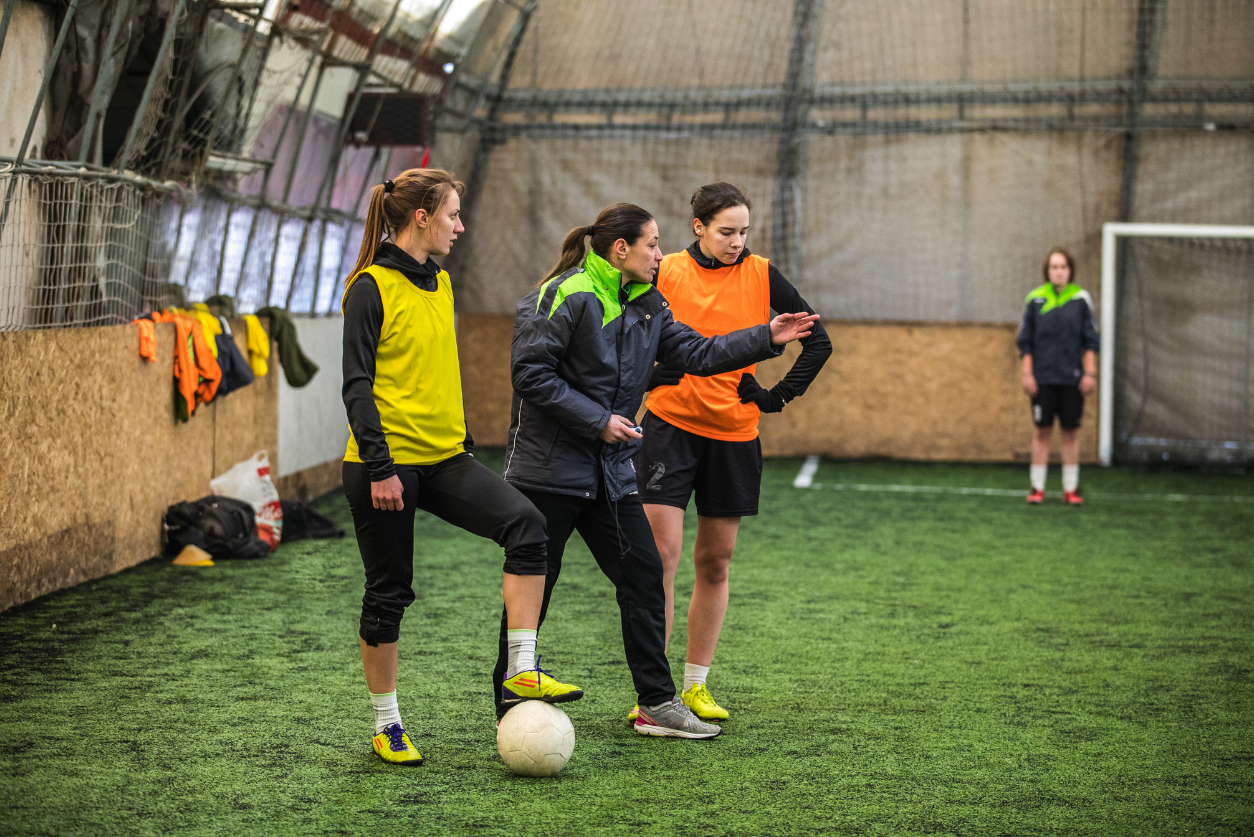Coaching is about more than teaching plays and running drills—it’s also about motivating athletes to believe in themselves, work together, and give their best effort every time they compete. One of the most effective tools for building a strong, united, and driven team is sports psychology.
At Launch Sports Performance, we believe that the mental side of sports is just as important as the physical side. In this blog, we’ll explore how coaches can use sports psychology to motivate their teams, improve communication, and help each athlete perform at their highest level.
What Is Sports Psychology?
Sports psychology is the study of how mental and emotional factors affect athletic performance. It focuses on improving things like confidence, focus, teamwork, motivation, and emotional control.
While athletes benefit directly from learning these skills, coaches play a key role in helping their teams develop a strong mental game. With the right approach, coaches can create a team environment that supports growth, builds trust, and encourages top-level performance.
Why Motivation Matters in Team Sports
Motivation is what drives athletes to show up early, work hard, and give their best effort—even when things get tough. A motivated team:
- Works together more effectively
- Pushes through challenges
- Supports one another
- Stays focused on shared goals
Without motivation, even a team with talent and experience can fall short. That’s why understanding what motivates players—and how to tap into that motivation—is key to a coach’s success.
How Sports Psychology Helps Coaches Motivate Their Teams
Let’s take a closer look at how coaches can apply sports psychology strategies to inspire and guide their athletes:
1. Understanding Individual Motivation Styles
Not every athlete is motivated by the same thing. Some players respond to competition, while others thrive on praise or a sense of team connection.
Sports psychology teaches coaches to recognize two types of motivation:
- Intrinsic motivation: Driven by internal rewards like personal growth, love of the game, or the satisfaction of doing well.
- Extrinsic motivation: Driven by external rewards like trophies, praise, or recognition.
Effective coaches learn what motivates each athlete and adjust their communication and feedback accordingly. This makes athletes feel seen, valued, and encouraged.
2. Creating a Positive Team Culture
A positive team culture builds trust, respect, and enthusiasm. When athletes feel safe and supported, they’re more likely to give full effort and stay committed—even during tough stretches.
Using sports psychology, coaches can:
- Encourage open communication and active listening
- Set team values like accountability, effort, and unity
- Celebrate both individual and team successes
Athletes who feel connected to the team are more motivated to support each other and reach shared goals.
3. Using Goal Setting to Boost Focus and Motivation
One of the most effective mental tools coaches can use is goal setting. Goals give athletes something to aim for and help them stay focused during practice and competition.
Sports psychology recommends that goals should be:
- Specific: Clear and easy to understand
- Measurable: Able to track progress
- Achievable: Challenging but realistic
- Relevant: Connected to team or personal development
- Time-bound: Set within a deadline
Setting short-term and long-term goals helps athletes stay motivated by showing them how small steps lead to big progress.
4. Teaching Mental Toughness and Resilience
Great teams know how to bounce back from mistakes, losses, and setbacks. Mental toughness—the ability to stay focused, confident, and composed—can be taught and strengthened through sports psychology.
Coaches can help athletes develop mental resilience by:
- Encouraging a growth mindset (“Mistakes help us learn”)
- Modeling calm, confident behavior during pressure
- Teaching players to reset quickly after setbacks
When athletes know how to stay mentally strong, they’re more likely to stay motivated through challenges.
5. Helping Athletes Manage Stress and Pressure
High-pressure situations can lead to anxiety, especially in young athletes. Coaches trained in sports psychology can teach their teams how to handle stress before it affects performance.
This includes:
- Breathing techniques for calm and focus
- Pre-game routines to build consistency and confidence
- Positive self-talk to replace negative thinking
When athletes feel more in control of their emotions, they perform better—and stay motivated to continue improving.
6. Encouraging Self-Reflection and Accountability
Motivation increases when athletes take ownership of their progress. Coaches can guide players to reflect on their performance, set goals, and take responsibility for their role on the team.
Sports psychology encourages:
- Regular team and individual check-ins
- Journaling or note-taking on performance
- Open conversations about improvement
This helps athletes feel like active participants in their development—not just followers of a coach’s plan.
7. Providing the Right Kind of Feedback
How a coach gives feedback can either motivate or discourage an athlete. Sports psychology shows that feedback should be:
- Specific: “You kept your head up on that pass” instead of “Good job”
- Timely: Delivered soon after the action
- Constructive: Focused on what to improve, not just what went wrong
- Balanced: Recognize effort and improvement, not just results
Motivating feedback helps athletes feel supported and encourages them to keep pushing forward.
When Coaches Prioritize the Mental Game, Everyone Wins
Coaches are more than just instructors—they’re leaders, motivators, and role models. When coaches use sports psychology strategies, they create a team environment that values effort, growth, and mental strength.
At Launch Sports Performance, we partner with coaches to offer tools, training, and insights into the mental side of the game. Our goal is to help teams perform better—mentally and physically—through proven strategies that work at all levels of sport.

